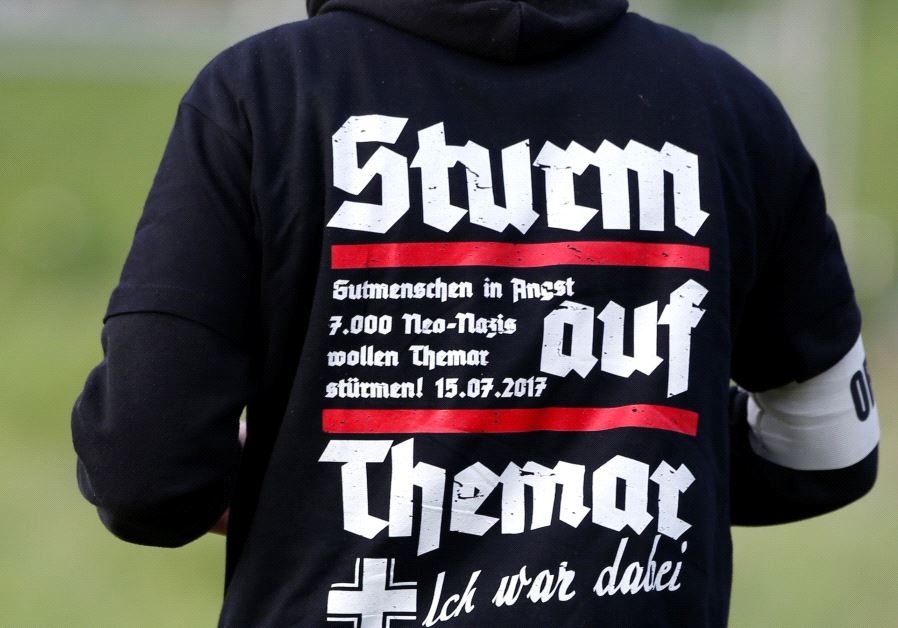Extremism on the rise in Germany, increasing threat of antisemitism
A German government office identified 32,080 right-wing extremists and 33,500 left-wing extremists in Germany in 2019.
 Attendee at Neo-Nazi concert, Themar, Germany, July 2017(photo credit: REUTERS/MICHAELA REHLE)
Attendee at Neo-Nazi concert, Themar, Germany, July 2017(photo credit: REUTERS/MICHAELA REHLE)